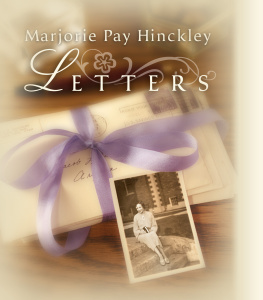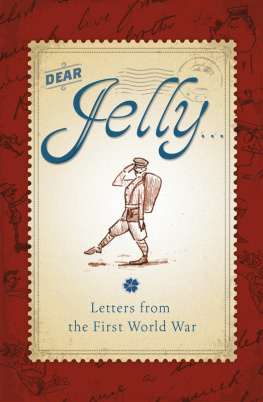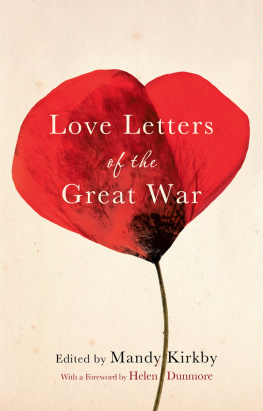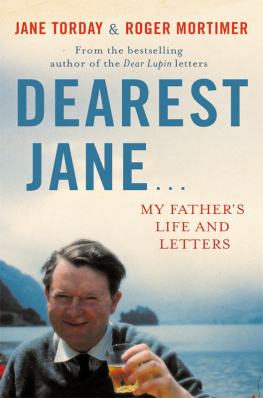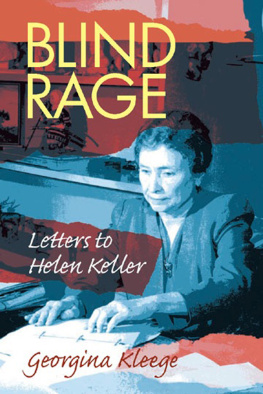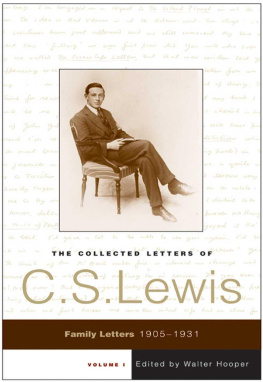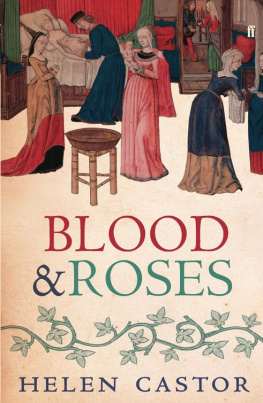Letters from the Lost
OUR LIVES: DIARY, MEMOIR, AND LETTERS
Series Editor: Janice Dickin
OUR LIVES aims at both student and general readership.
Todays students, living in a world of blogs, understand that there is much to be learned from the everyday lives of everyday people. Our Lives seeks to make available previously unheard voices from the past and present. Social history in general contests the construction of history as the story of elites and the act of making available the lives of everyday people, as seen by themselves, subverts even further the contentions of social historiography. At the same time, Our Lives aims to make available books that are good reads. General readers are guaranteed quality, provided with introductions that they can use to contextualize material and are given a glimpse of other works they might want to look at. It is not usual for university presses to provide this type of primary material. Athabasca University considers provision of this sort of material as important to its role as Canadas Open University.
SERIES TITLES
A Very Capable Life: The Autobiography of Zarah Petri by John Leigh Walters
Letters from the Lost: A Memoir of Discovery by Helen Waldstein Wilkes
Letters from the lost
A Memoir of Discovery
HELEN WALDSTEIN WILKES

2010 Helen Waldstein Wilkes
Published by AU Press, Athabasca University
1200, 10011 109 Street
Edmonton, AB T5J 3S8
Library and Archives Canada Cataloguing in Publication
Waldstein Wilkes, Helen, 1936
Letters from the lost : a memoir of discovery / Helen
Waldstein Wilkes.
(Our lives: diary, memoir, and letters, 1921-6653)
Includes bibliographical references.
Also available in electronic format (978-1-897425-54-1).
ISBN 978-1-897425-53-4
1. Waldstein Wilkes, Helen, 1936-. 2. Waldstein Wilkes, Helen, 1936- --Family. 3. Jews--Czech Republic--Prague--Biography. 4. Holocaust, Jewish (1939-1945)--Czech Republic--Personal narratives. 5. Jews--Czech Republic--Prague--Correspondence. 6. Jews--Canada--Biography. I. Title. II. Series: Our lives: diary, memoir, and letters series (Edmonton, Alta.).
DS135.C97W35 2010 940.531809224371 C2009-906247-X
Cover design by Sergiy Kozakov.
Book design by Laura Brady.
Printed and bound in Canada by Marquis Book Printing.
All images unless otherwise credited are courtesy of Helen Waldstein Wilkes.

This project was funded in part by the Alberta Foundation for the Arts.
Please contact AU Press, Athabasca University at
aupress@athabascau.ca for permissions and copyright information.
A volume in the Our Lives: Diary, Memoir, and Letters series:
ISSN 1921-6653 (Print)
ISSN 1921-6661 (Online)
Contents

Foreword
MOVING, SEARING, WRENCHING, INSPIRINGthe adjectives that can apply to many memoirs of the Holocaust and the feelings they evoke certainly apply as well to Letters from the Lost. Each personal odyssey is individual, though, and this narrative is distinguished by the individuality of Helen Waldstein Wilkes story and the insightful clarity with which she tells it. As she searches for her own history and for the family members who perished after she and her parents escaped Nazi-occupied Czechoslovakia, Wilkes difficult return to that past illuminates the terrain of suppressed memory, as well as its costs. Memories of our history hold us together as individuals, Wilkes writes, as families and as communities. When we forget who we have been, we remain unaware of who we are. (p. vii) For some four decades Wilkes guarded but did not open the box of letters that held fragments and maps of her history. Not until she was past sixty was she ready to begin that journey of recovery. This memoir is the legacy of her search.
I read these pages as a historian, intrigued by the process of recovering lost memories and historical erasures, and as a Jew, familiar, in much-diluted form, with the process of self-protective selective forgetting. I was born shortly after World War II, nine months after my Dad was mustered out of the U.S. Army. As a child I learned that the Holocaust had happened, but also, my parents insisted, that it had not really touched our family. This childhood fiction was not an uncommon story for Jewish children born in post-war North America. Even for families like my own, who lost no immediate kin, it was rarely true. My fathers family had emigrated to Canada and the United States by 1913; my mothers grandparents arrived even earlier. My great-grandfather fled the czars army, not Hitlers. But ours was a large, extended family. Numerous cousins remained in Europe, and we may never know how many of them perished. Over three decades after the War ended, my Dad discovered a first cousin he had never known existed, living in Jerusalem, who had somehow survived, hiding in Prague throughout the war.
My story is not unusual. Nor is my parents denial, or perhaps their attempt to shelter their children from a too-painful and too-recent past. The post-war years have, for the survivors, brought the gradual process of remembering, of painful reconstruction, and the inevitable questions about what might have been. This work of memory has generated a dense and varied literature of Holocaust memoirs: by survivors
Each persons journey into these suppressed pasts has been at once shared and intensely personal, as individual as each life taken, each story lost. Letters from the Lost impressively combines honest self-revelation, moral clarity, and compassion. It is unusual among survivors memoirs because Wilkes journey is almost without historical parallel. Born in Sudetenland, that portion of Czechoslovakia the Allies ceded to Hitler in April 1938, her family was, according to her father, the last to receive an exit visa that enabled them to leave just days after German troops entered Prague. Even more remarkably, they were among the very few Jews who gained entry to Canada. Someone was asleep at the switch, Wilkes surmises, when her aunt and uncle entered Canada through a Canadian Pacific Railway program to recruit farmers. Someone was asleep again when her aunt sponsored Edmund and Gretl Waldstein and little Helen. No one, apparently, realized that they were Jews.
Both the United States and Canada refused entry to most Jews in the immediate pre-war years. Both had admitted Jews through the early twentieth century. Canada, unlike the United States, had permitted Jewish agricultural colonies on the prairies. But neither welcomed Jewish immigrants during the 1930s. The United States severely restricted European immigration in 1924, and during the 1930s resisted appeals on behalf of European Jews. Canada separated Jews as a class from others who shared the same citizenship and then quietly restricted Jewish immigration.
Letters from the Lost differs from most narratives of the search for lost relatives because Helen Waldstein Wilkes was one of very few children to escape with her parents, and one of even fewer to enter Canada before the formal onset of the War. Her narrative speaks not only to the Holocaust, but also to her difficult transition to Canada as an immigrant Jewish child. The search for her roots, for those who were murdered and the few who survived, also helped unlock how her parents experiences, and the memories they had hidden or forgotten, affected her own ability to connect with people, with Canada, with Judaism. Although most children of survivors carried their parents pasts in some ways, each response was particular. Some survivors adamantly held to Orthodox Judaism; others had not been particularly observant before the War and remained so afterward; some abandoned most religious practice in response to a faith that had not prevented the brutality they endured. Their children, like most, grappled in their own ways with Jewish and national identities.
Next page

